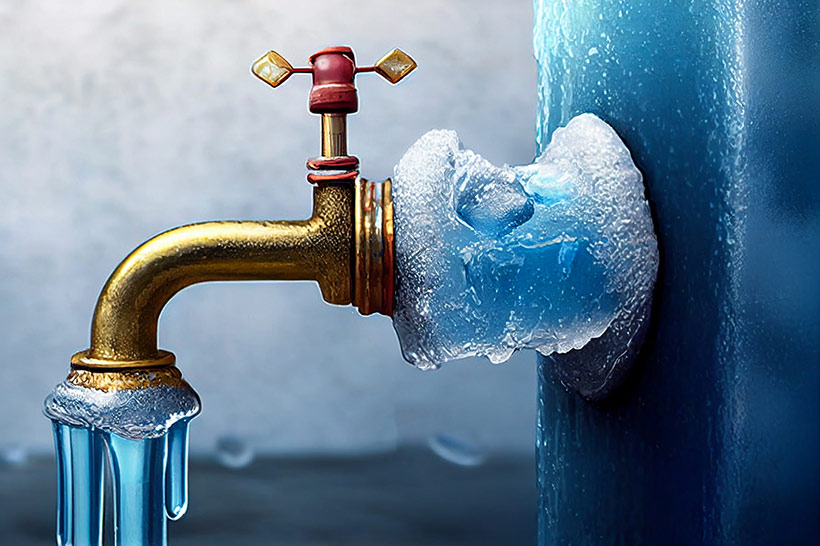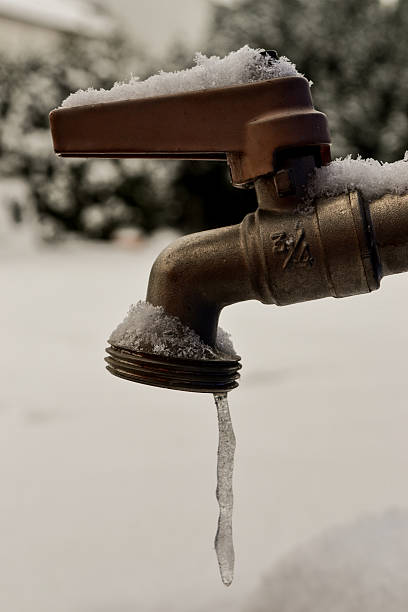Right here underneath you can locate lots of exceptional points around How to prepare your home plumbing for winter weather.

Cold weather can wreak havoc on your pipes, particularly by freezing pipelines. Right here's exactly how to prevent it from taking place and what to do if it does.
Introduction
As temperatures decrease, the risk of frozen pipes rises, potentially resulting in expensive repairs and water damages. Understanding just how to avoid icy pipes is crucial for property owners in cold climates.
Understanding Icy Pipes
What causes pipelines to ice up?
Pipelines ice up when revealed to temperatures listed below 32 ° F (0 ° C) for extended periods. As water inside the pipelines freezes, it expands, putting pressure on the pipeline walls and potentially causing them to break.
Threats and damages
Frozen pipelines can cause water system disruptions, residential property damage, and costly repairs. Ruptured pipes can flooding homes and cause comprehensive architectural damage.
Indications of Frozen Piping
Identifying frozen pipelines early can avoid them from breaking.
Just how to recognize icy pipelines
Seek reduced water circulation from faucets, uncommon odors or noises from pipes, and noticeable frost on exposed pipes.
Prevention Tips
Insulating vulnerable pipelines
Cover pipes in insulation sleeves or make use of heat tape to protect them from freezing temperature levels. Concentrate on pipelines in unheated or exterior areas of the home.
Heating methods
Maintain interior spaces sufficiently heated up, especially areas with pipes. Open up cupboard doors to permit warm air to circulate around pipes under sinks.
Safeguarding Outside Pipes
Garden hose pipes and exterior faucets
Disconnect and drain pipes yard pipes before wintertime. Mount frost-proof faucets or cover outdoor faucets with insulated caps.
What to Do If Your Pipelines Freeze
Immediate activities to take
If you think frozen pipes, maintain faucets open up to ease stress as the ice melts. Make use of a hairdryer or towels taken in warm water to thaw pipes slowly.
Long-Term Solutions
Architectural adjustments
Consider rerouting pipelines far from outside wall surfaces or unheated areas. Include extra insulation to attic rooms, basements, and crawl spaces.
Updating insulation
Buy top quality insulation for pipes, attic rooms, and walls. Correct insulation helps preserve constant temperatures and minimizes the risk of frozen pipes.
Verdict
Protecting against frozen pipes calls for proactive steps and quick reactions. By comprehending the reasons, indicators, and preventive measures, home owners can protect their plumbing throughout winter.
Helpful Tips to Prevent Frozen Pipes this Winter
UNDERSTANDING THE BASICS: WHY PIPES FREEZE AND WHY IT’S A PROBLEM
Water freezing inside pipes is common during the winter months, but understanding why pipes freeze, and the potential problems it can cause is crucial in preventing such incidents. This section will delve into the basics of why pipes freeze and the associated problems that may arise.
THE SCIENCE BEHIND FROZEN PIPES
When water reaches freezing temperatures, it undergoes a physical transformation and solidifies into ice. This expansion of water as it freezes is the primary reason pipes can burst. As the water inside the pipe freezes, it expands, creating immense pressure on the walls. If the pressure becomes too great, the pipe can crack or rupture, leading to leaks and water damage.
FACTORS THAT CONTRIBUTE TO PIPE FREEZING
Low Temperatures: Extremely cold weather, especially below freezing, increases the risk of pipes freezing. Uninsulated or Poorly Insulated Pipes: Pipes located in unheated areas, such as basements, crawl spaces, or attics, are more prone to freezing. Insufficient insulation or lack of insulation altogether exacerbates the problem. Exterior Wall Exposure: Pipes running along exterior walls are susceptible to freezing as they encounter colder temperatures outside. Lack of Heating or Temperature Regulation: Inadequate heating or inconsistent temperature control in your home can contribute to frozen pipes. PROBLEMS CAUSED BY FROZEN PIPES
- Pipe Bursting: As mentioned earlier, the expansion of water as it freezes can cause pipes to burst, resulting in significant water damage.
- Water Damage: When pipes burst, it can lead to flooding and water damage to your property, including walls, ceilings, flooring, and personal belongings.
- Structural Damage: Prolonged exposure to water from burst pipes can compromise the structural integrity of your home, leading to costly repairs.
- Mold and Mildew Growth: Excess moisture from water damage can create a favorable environment for mold and mildew growth, posing health risks to occupants.
- Disrupted Water Supply: Frozen pipes can also result in a complete or partial loss of water supply until the issue is resolved.
WHY CERTAIN PIPES ARE MORE PRONE TO FREEZING
- Location: Pipes located in unheated or poorly insulated areas, such as basements, crawl spaces, attics, or exterior walls, are at higher risk of freezing.
- Exterior Pipes: Outdoor pipes, such as those used for irrigation or exposed plumbing, are particularly vulnerable to freezing as they are directly exposed to the elements.
- Supply Lines: Pipes that carry water from the main water supply into your home, including the main water line, are critical to protect as freezing in these lines can affect your entire plumbing system.
- Underground Pipes: Pipes buried underground, such as those connected to sprinkler systems or outdoor faucets, can be susceptible to freezing if not properly insulated.
https://busybusy.com/blog/helpful-tips-to-prevent-frozen-pipes-this-winter/

I'm certainly very enthusiastic about Preventing and dealing with frozen pipes and I really hope you appreciated my piece. Remember to pause to share this write-up if you liked it. I love your readership.
Call Today